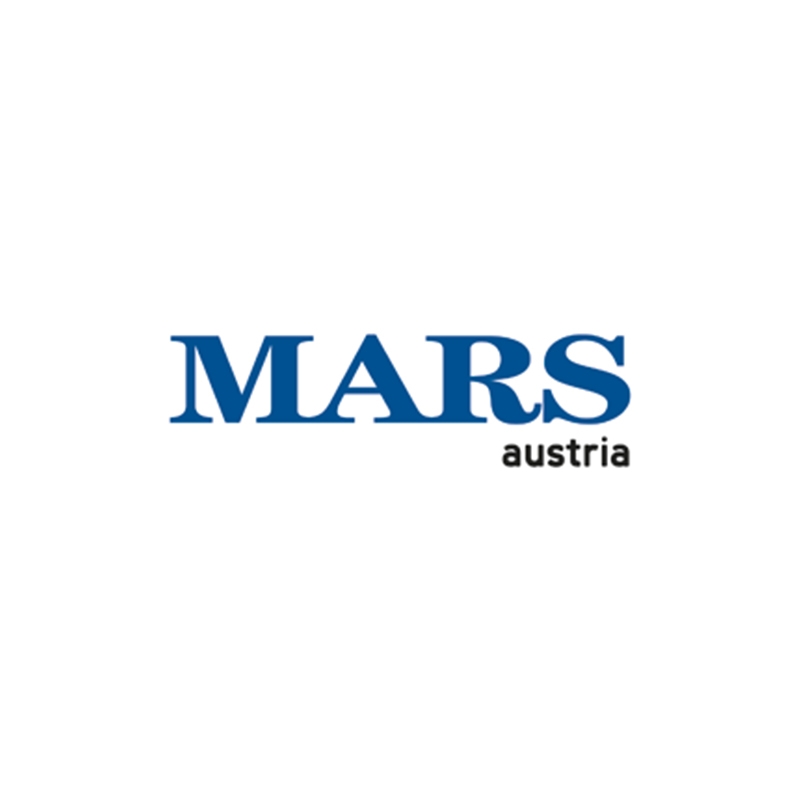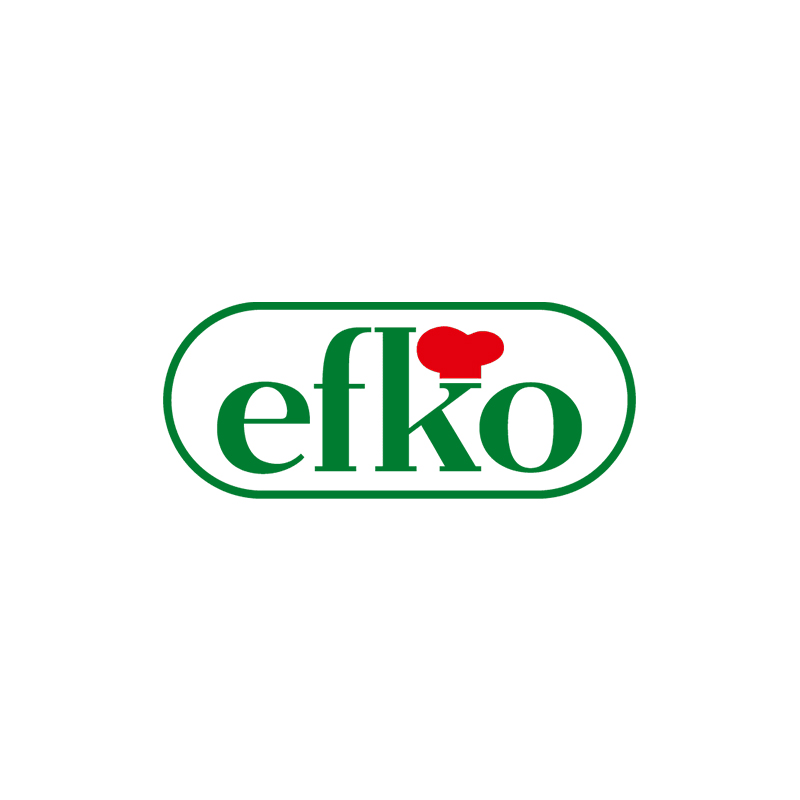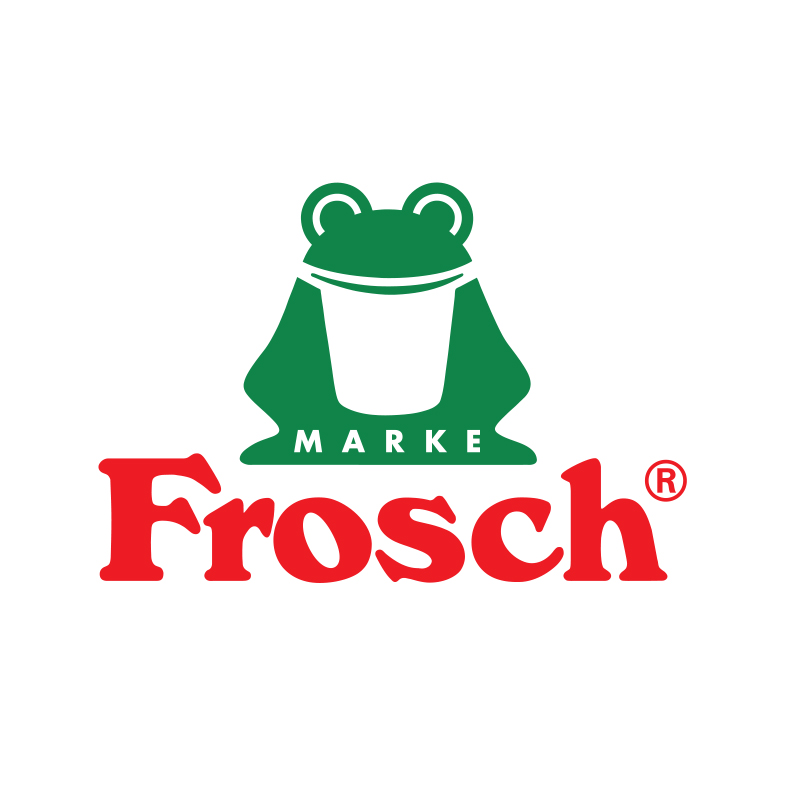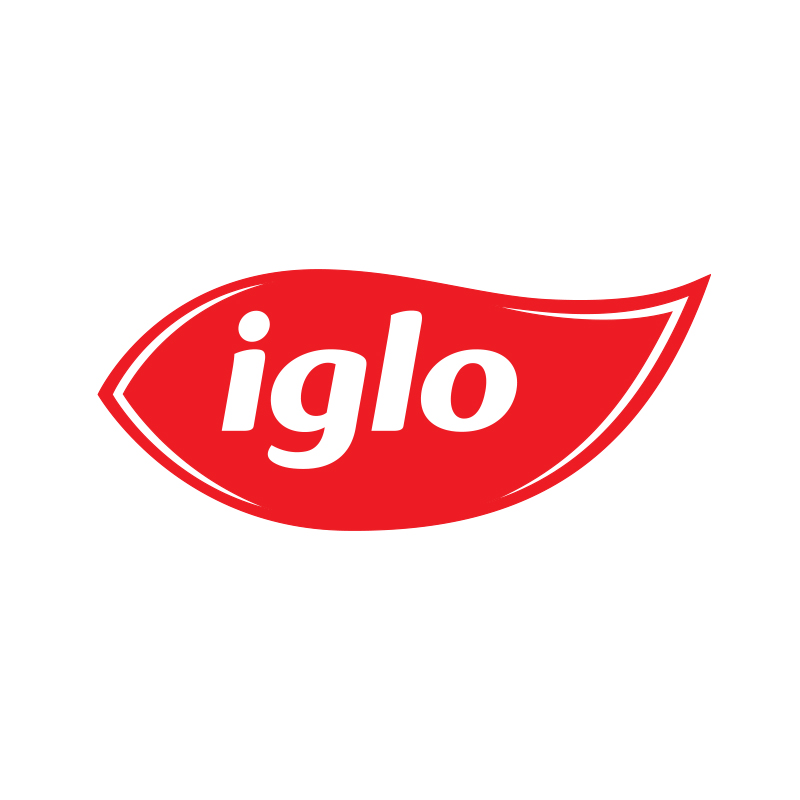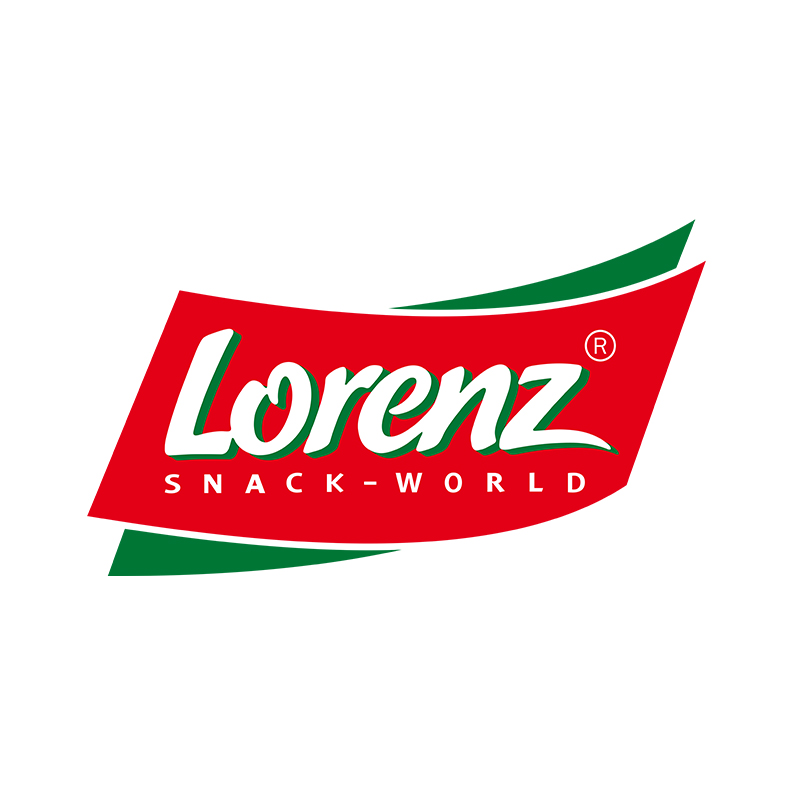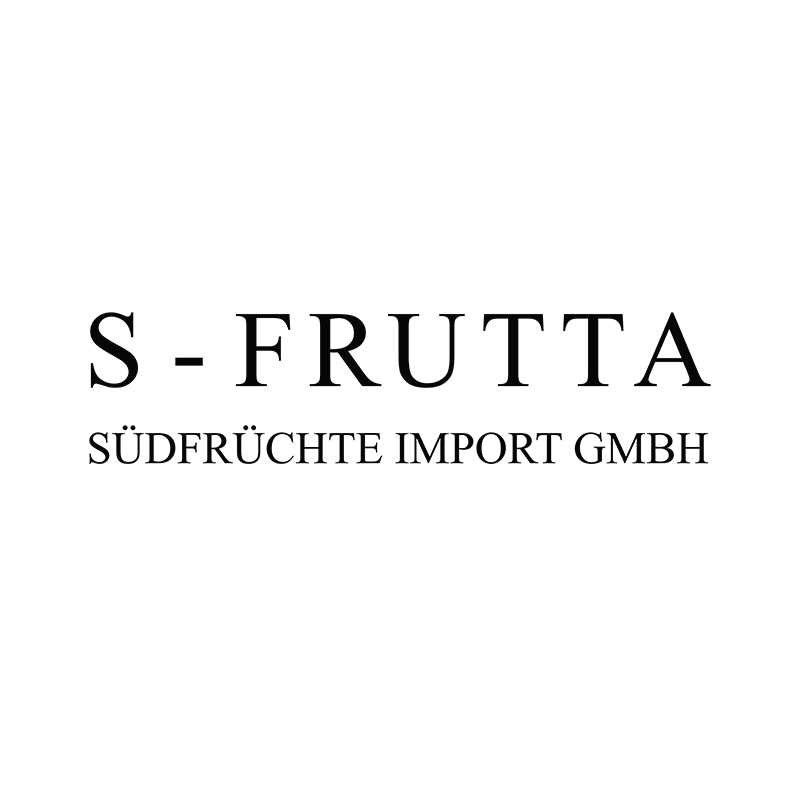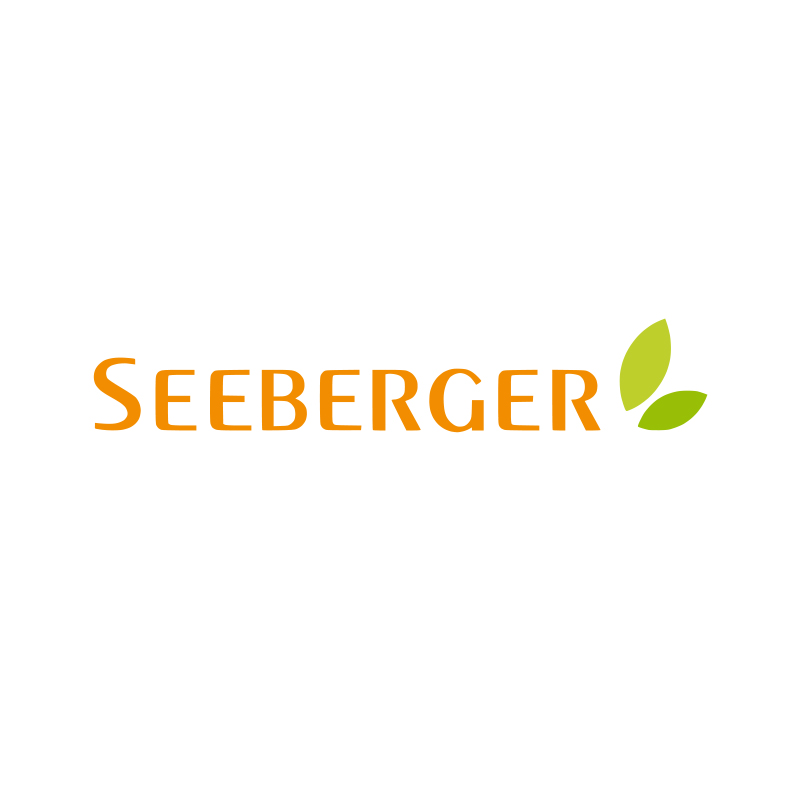
Climate neutrality by 2040
Sustainable shopping for climate protection
Climate protection has long since ceased to be a niche topic. Environmental protection and conscious consumption are high on the agenda of consumers. We have been committed to sustainability for many years and have set ourselves a high goal: to become climate neutral by 2040. Every detail counts if we are to achieve this together with our partners and customers.
-
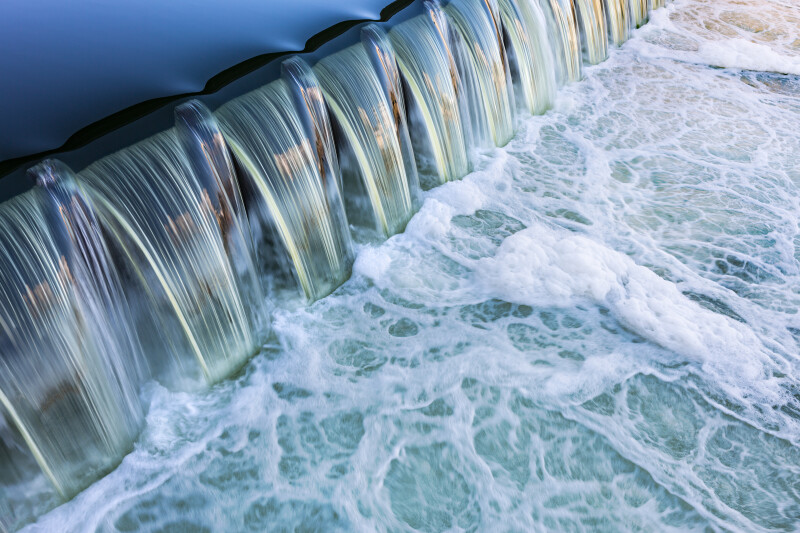
100% green electricity
As a partner of the klimaaktiv Pact 2030, REWE International AG supports the energy transition together with other companies. BILLA, BILLA PLUS, PENNY, BIPA and ADEG use 100% green electricity from Austria in their own stores. Four out of five branches are already energy efficient today. The conversion of the other stores is underway.
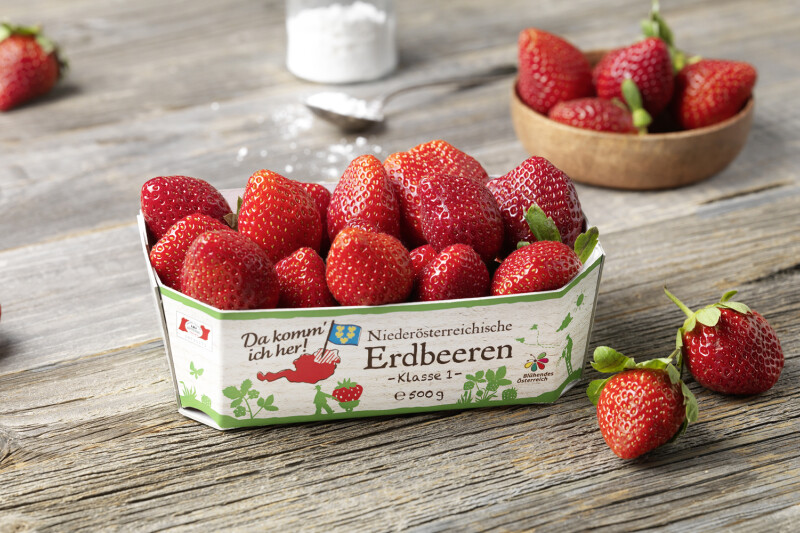
Climate-friendly shopping
Whenever possible, the leading local supplier relies on producers and suppliers from the region. The products of the own brand "Da komm' ich her!" (That's where I come from!) are grown in the nearest regions of Austria in each case. Ja! Natürlich products also meet the highest organic standards and are preferably sourced from Austria. There are also small local partners who supply the BILLA markets directly.
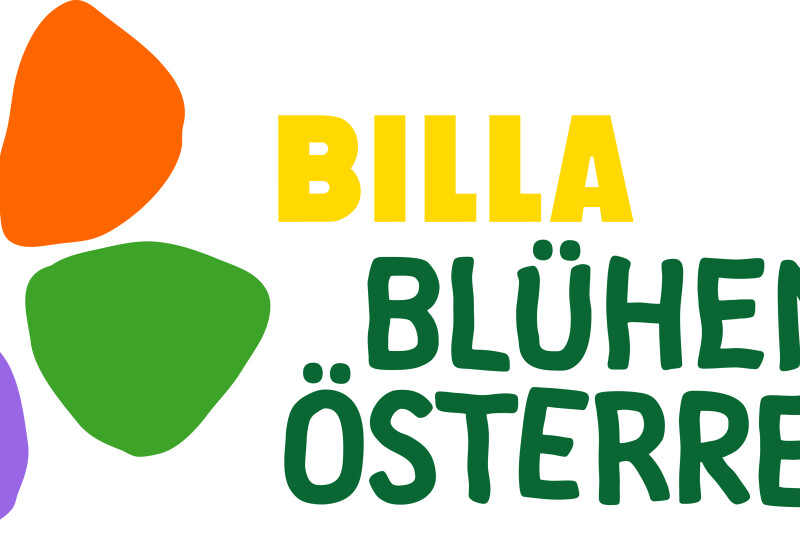
Join in and preserve Austria’s diversity
With the non-profit foundation "Blühendes Österreich" (Blooming/Flourishing Austria), BILLA finances farmers who protect nature and the climate through sustainable farming. This project is also supported by buying BILLA’s own brand "Da komm’ ich her!" (That's where I come from!). In this way, customers contribute to a colourful, liveable and species-rich Austria.
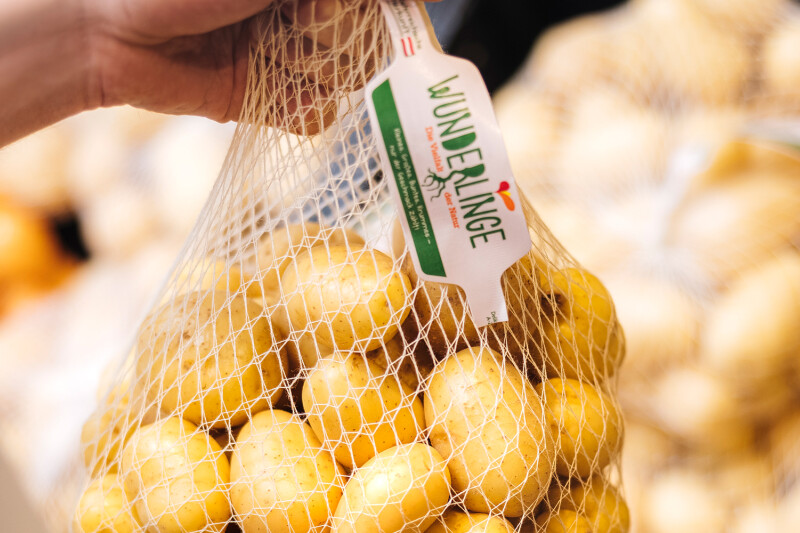
Use instead of waste
Whether small, large, colourful or crooked – when it comes to weird fruit and vegetables, the focus is on taste and not on appearance. Fruit and vegetables with blemishes can be found under REWE’s own brand. Buying these saves food from being processed as substandard or even discarded. In Vienna, the "Too good to Go" app allows surplus food to be collected from participating BILLA stores at a discounted price. In Styria and Burgenland, fruit & vegetable rescue boxes are available in selected BILLA stores.
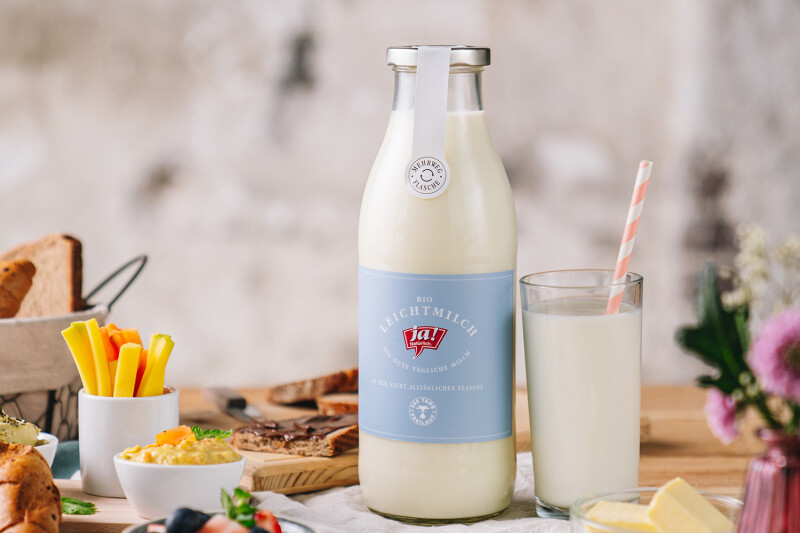
Out with (disposable) plastic
Since 2011, Austria’s largest organic brand "Ja! Natürlich" has been gradually moving to green packaging. The initiative "Raus aus einem Meer von Plastik" (Out of a sea of plastic) by Ja! Natürlich alone has already saved more than 1,100 tonnes of plastic and over 5,000 tonnes of CO2. With the packaging of BIPA’s bi good care products, the focus is on the maximum possible recycled content. Under the motto "Avoid, Reduce, Improve", all private labels in Austria will also be converted to 100% more environmentally friendly packaging by 2030.
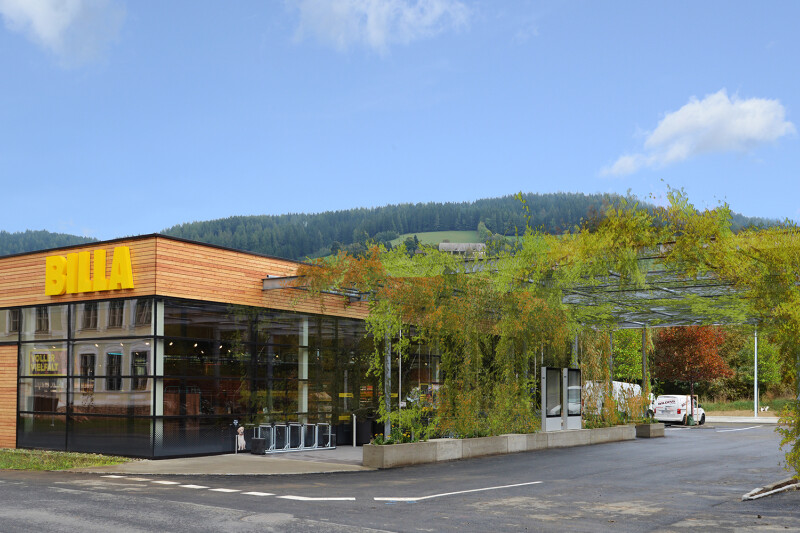
Green shopping experience
Austria’s greenest BILLA in Obdach, Styria, shows how we will shop in the future. The certified Green Building was built sustainably and is operated in an energy-saving manner. During the day, the photovoltaic system on the green roof supplies solar power. In winter, the waste heat from the refrigeration system is used for heating. Together with many other measures – from LED lights to energy-saving fans – energy demand is reduced by up to 40%. The greening of the building, the outdoor areas and parking spaces contribute to a cooler microclimate in the surrounding area. For this project, BILLA was the first grocer worldwide to receive a gold certification from GREENPASS®.
Three tips for climate-conscious shopping
There is a lot to do. Even with small actions, you can help to protect the environment through your climate-conscious shopping.
-
Reusable
Reach for the reusable net and reusable bottles. Recycling resources is an important step in reducing CO2 emissions.
Shopping list or app
Take the shopping list or app with you. That way you only buy what you really need and avoid food waste.
Wunderlinge (Weirdos)
Give weirdos a chance. Fruit and vegetables with blemishes still taste delicious. Quality is not determined by appearance alone!
Achieving more through cooperation
Great things are best achieved by joining forces. Together with our partner companies, we are taking important steps towards climate neutrality.
-

Brau Union
Klaus Schörghofer
"Beer is a natural beverage and can only be as good as the raw materials, most of which come from Austria. We’ve long paid attention to the sparing use of resources and are pursuing the goal of being CO2-neutral in all production by 2030, including the entire value chain by 2040. Two green breweries, Göss and Schladming, already brew CO2-neutrally. With waste heat in Puntigam and Schwechat, photovoltaic and biogas plants, we are successfully continuing on this path."

LGV Sonnengemüse
Josef Peck
"For several years now, LGV Sonnengemüse and its producers have placed a high priority on resource conservation, sustainable management, reduction of energy consumption and lower CO2 emissions, in all decisions and measures taken. We generate electricity with photovoltaic systems, heat with district heating, irrigate with collected rainwater via drip irrigation, fertilise with biomass, constantly modernise our cooling systems to save energy and use beneficial organisms instead of pesticides. We keep transport distances short – our vegetables are sorted and packaged at takeover points in the growing regions. We reduce packaging and avoid plastic wherever it makes sense. We are constantly expanding our organic cultivation areas. We’re currently working on a project to achieve climate neutrality at all our locations in the next few years."

Essity
Markus Britz
"As a market leader, Essity takes responsibility for people and the environment. We will reduce our CO2 emissions by a third by 2035 and be completely climate neutral by 2050. To achieve this, we are focusing on the increased use of renewable energies, efficient production facilities and alternative raw materials. For example, 30% straw pulp in Plenty kitchen towels from January 2022. The short procurement routes of our popular ‘made in Austria’ Zewa and Cosy toilet papers ensure a lower CO2 impact right here in Austria."
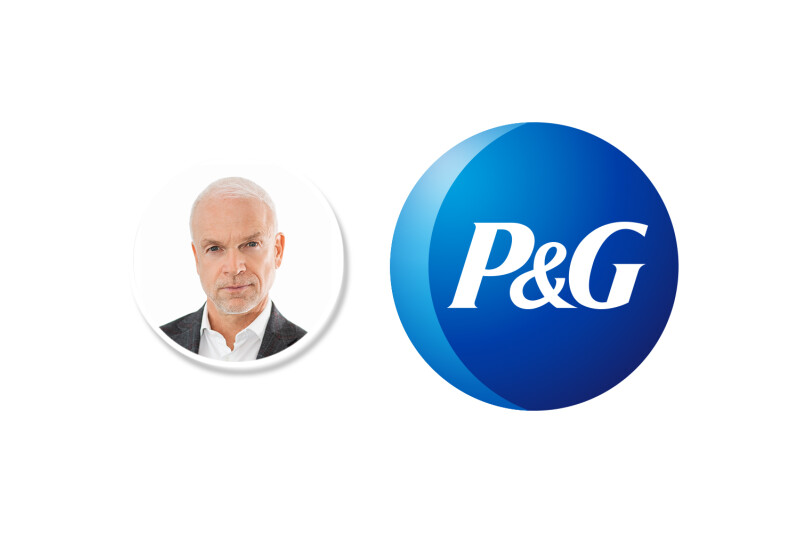
Procter & Gamble Austria
Christian Zimlich
"P&G has announced its intention to be NetZero by 2040. This includes our own production as well as supply chains and logistics. To achieve this goal, we have drawn up a broad climate action plan until 2040. Its anchor point is to have halved CO2 emissions in production by 2030 and to compensate for all emissions that we could not avoid through significant investments in natural climate protection solutions. This means that we are making the decade 2020-2030 climate neutral. For natural climate protection solutions, we work together with various NGOs such as Conservation International, WWF and the Arbor Day Foundation. With these partners, we will invest in endangered ecosystems and in reforestation programmes, i.e. carbon sinks. This month, we will plant 25,000 trees in Germany together with the Schutzgemeinschaft Deutscher Wald, Landesverband Sachsen. In addition, we already source 100% green electricity for our production in the USA, Canada and Europe."

Unilever Austria
Nikolaus Huber
"In the coming years, Unilever will invest 1 billion euros to eliminate fossil raw materials from its detergents, cleaning products and cleaning agents. Considered over the entire value chain, these currently cause the majority of the CO2 footprint (46%) of the products. Under the ‘Clean Future’ strategy, only ingredients made from renewable or recycled carbons will be used instead from 2030 onwards. We have also set ourselves the ambitious goal of using at least 25% recycled post-consumer plastics in our packaging by 2025. By 2039, the entire category supply chain, from material sourcing to production to store shelves, is to become net-emissions free."
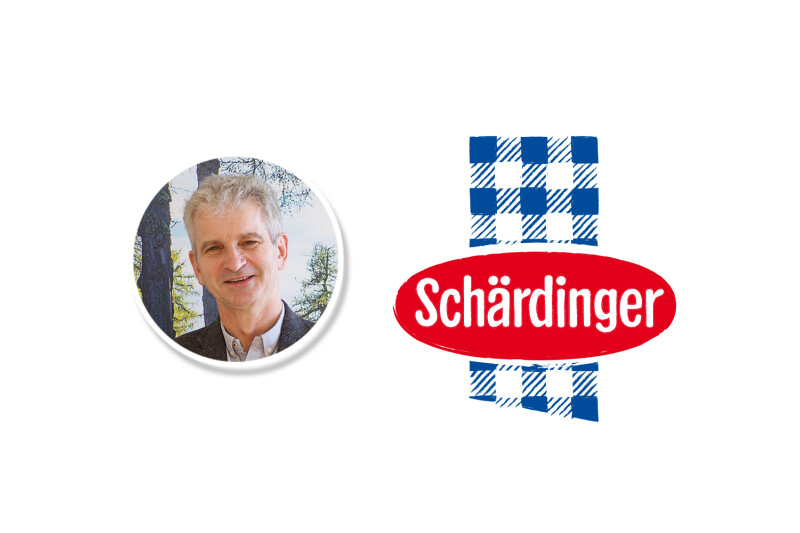
Berglandmilch
Josef Braunshofer
"Climate neutrality by 2040 will have a noticeable impact on many areas of our lives much sooner than we think today. The necessary measures will probably have to take on a much greater significance in our daily working lives than we are aware of today. And it will affect all areas of our working lives. However, one thing is already certain today: there is no alternative to the measures that need to be taken."

